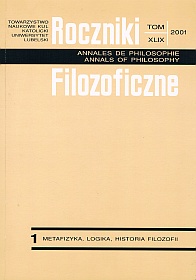Assumptions and epistemological consequences of the formal explication of the concept of justification in the Finnish School
Abstract
The common view on the program of the formal explication of the concept of confirmation, undertaken primarily by Carnap and the members of the Finnish School, is that it is irrelevant to epistemological debates on justification. In order to oppose this view I draw upon the features of Carnap’s early epistemological project expressed in Der logische Aufbau der Welt (1928). The key issue concerns the role of logic in epistemology, which in Carnap's own terms deviates from the one ascribed to it in the traditional program of logical empiricism, i.e. for Carnap logical structure is a precondition of objective epistemic relations between sentences. This view is inherited by the Finnish School, and the differences between theirs and Carnap's systems of inductive logic concern the type of theory of knowledge rather than theory of justification which in both cases is essentially identical.
Copyright (c) 2001 Roczniki Filozoficzne

This work is licensed under a Creative Commons Attribution-NonCommercial-NoDerivatives 4.0 International License.





